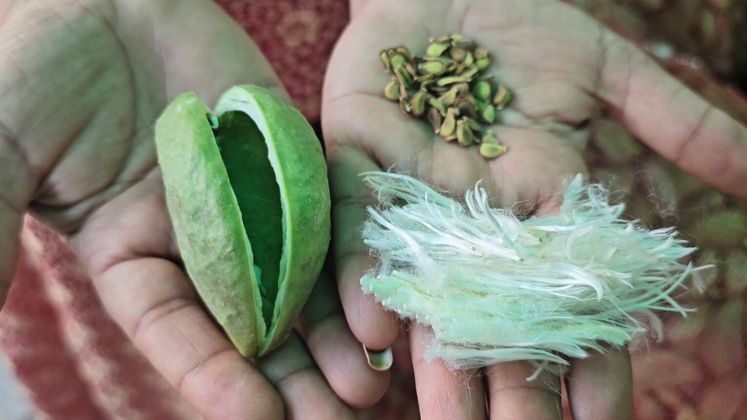
A wild desert plant, which was often seen as a weed—a plant that was commonly cut and discarded in Rajasthan’s arid zones—is being spun into a new story of livelihood. The project is turning the Aak plant (Calotropis gigantea) into fibre, which will be spun into textile, all with the involvement of international fashion designer and social activist Ruma Devi.
The Ruma Devi Foundation has commenced a grassroots movement across some of the districts, including Barmer, Jaisalmer, Jodhpur, Bikaner and Sikar, where women and farmers are being trained to collect and process fibre from Aakpadia, the mango-shaped fruit of the Aak plant. This naturally occurring shrub needs no fertilisers, needs little water and grows quickly and easily in the tough conditions of Rajasthan to produce sustainable, naturally occurring, eco-friendly fibre.
The initiative has been noticed by Union Textile Minister Giriraj Singh, who raised NITRA—the Northern India Textile Research Association—where tests have also verified that Aak fibre is warm and durable. The first products include jackets, sleeping bags and quilts which are made from this lightweight, breathable fabric.
The Ruma Devi Foundation is providing free training on fibre extraction and storage. Their current target for purchase is Aakpadia, with the potential of creating new income streams for the rural household. “This is a phenomenal opportunity,” said the project’s manager, Gorang Manda. “Once planted, Aak can be cropped for at least ten years, with little intervention and the income potential can be considerable.”
As fashion meets sustainability, the deserts of Rajasthan are turning green with potential. I never thought an economic opportunity would arise from what was formerly considered “a weed.”






